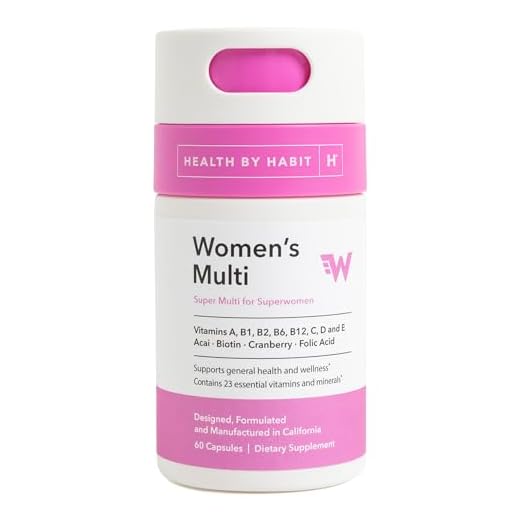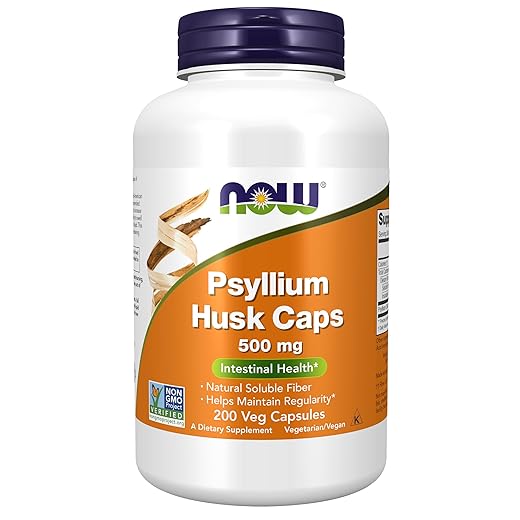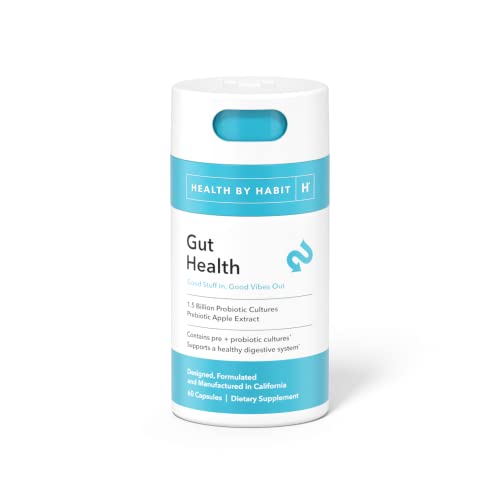This step-by-step guide provides instructions on how to consult a healthcare professional about taking health supplements safely. It introduces the topic of health supplements, explaining their purpose and importance in maintaining good health. The guide aims to help individuals navigate the process of discussing and incorporating supplements into their healthcare routine in a safe and effective manner.
Top-rated supplements for optimal health


Research the Supplement
- Research the health supplement thoroughly: Look into its benefits to understand how it may help you. Explore possible side effects to be aware of any risks associated with the supplement. Find out the recommended dosage from reliable sources to ensure you are taking it correctly.
Consult Your Healthcare Provider
- Schedule an appointment with your healthcare provider promptly.
- Bring any research or questions you have regarding the health supplement.
- Discuss your interest in the supplement during your appointment.
Medical History and Current Medications
- List all medications: Write down all prescription drugs and over-the-counter medications you are currently taking.
- Include supplements: Don’t forget to include vitamins, minerals, or herbal supplements on your list.
- Provide detailed medical history: Be sure to mention any past surgeries, illnesses, or chronic conditions to your healthcare provider.
- Update regularly: Keep your medical history and medication list up to date and share any changes with your healthcare provider during each visit.
Discuss Risks and Benefits
- Engage: Initiate an open conversation with your healthcare provider.
- Discuss: Talk about the potential risks and benefits of the health supplement.
- Consider: Take into account your individual health status when evaluating the information provided.
Dosage and Interactions
- Consult your healthcare provider: Before taking any supplement, ask your healthcare provider about the correct dosage. For example, if you are considering taking Vitamin D, make sure to inquire about the recommended daily intake for your specific age and health status.
- Inquire about interactions: Discuss with your healthcare provider potential interactions between the supplement and any medications you are currently taking. For instance, if you are prescribed blood thinners and are thinking of taking a herbal supplement like Ginkgo Biloba, ask about any possible adverse effects or reduced effectiveness when combined.
Follow-Up Plan
- Schedule regular check-ups to monitor the effects of the supplement.
- Keep a record of any changes in your health and report them to your healthcare provider promptly.
- Follow any advice or recommendations given by your healthcare provider to ensure your well-being.
Regular Check-Ins
- Schedule regular check-ins: Make appointments with your healthcare provider to talk about how you are feeling while taking the supplement. Mention any side effects you may be experiencing and discuss whether the supplement is still the right choice for your health requirements. Keep these check-ins consistent to ensure you are closely monitoring your well-being.
Stay Informed
- Stay Updated: Keep yourself informed about the health supplement. Research its effects and stay up-to-date with any new findings.
- Monitor Research: Regularly check for new studies and guidelines related to the supplement’s safe usage.
- Stay Informed: Ensure you are well-informed about any changes or updates that could impact the supplement’s effectiveness and safety. Keep an eye on reputable sources for the latest information.
Practice Safe Supplement Consultation
In conclusion, consulting a healthcare professional before taking health supplements is crucial for ensuring safety and effectiveness. By discussing your individual needs, current health conditions, and potential risks with a qualified professional, you can make informed decisions about incorporating supplements into your routine. Remember to prioritize transparency and communication with your healthcare provider to promote your overall well-being.
Necessary Items
Expert Advice for Supplements
Tips for Maximizing the Benefits of Health Supplements
- Consult with a healthcare provider: Before starting any health supplements, it is important to consult with a healthcare provider to ensure they are appropriate for your individual needs and health status
- Start with one supplement at a time: Begin by introducing one supplement into your routine at a time. This will allow you to monitor the effects of each supplement and determine if it is beneficial for you
- Follow recommended dosage: Always follow the recommended dosage instructions provided on the supplement packaging or by your healthcare provider. Taking more than the recommended dosage can be harmful
- Monitor for side effects: Keep track of any changes in your body or health after starting a new supplement. If you experience any adverse effects, stop taking the supplement and consult with your healthcare provider
- Give it time: Health supplements may take time to show noticeable effects. Be patient and consistent with taking the supplements as recommended to see potential benefits
Supplement FAQs
Are health supplements necessary for maintaining good health, or can a balanced diet provide all necessary nutrients?
A balanced diet can provide all necessary nutrients for maintaining good health. It is generally recommended to obtain nutrients from food sources whenever possible, as they are often better absorbed and utilized by the body compared to supplements. However, in some cases, such as certain vitamin deficiencies or specific health conditions, supplements may be necessary. It is important to consult with a healthcare professional or a registered dietitian before starting any supplement regimen to ensure it is appropriate for individual needs.
What are health supplements and how do they differ from prescription medications?
Health supplements are products that are intended to supplement the diet and provide additional nutrients that may be lacking in a person’s regular diet. They come in various forms such as vitamins, minerals, amino acids, herbs, and other botanicals.
Prescription medications, on the other hand, are drugs that are regulated by government agencies and can only be obtained with a prescription from a licensed healthcare provider. These medications are specifically formulated to treat or manage specific health conditions or diseases.
The main difference between health supplements and prescription medications is that supplements are not intended to treat, cure, or prevent diseases, while prescription medications are designed to specifically target and address medical conditions. Additionally, prescription medications are subject to more rigorous testing and regulation compared to health supplements.
Are there any regulations in place to ensure the safety and quality of health supplements?
Yes, there are regulations in place to ensure the safety and quality of health supplements in many countries. For example, in the United States, the Food and Drug Administration (FDA) regulates dietary supplements under the Dietary Supplement Health and Education Act (DSHEA). This includes requirements for good manufacturing practices, labeling standards, and post-market surveillance. Other countries may have similar regulatory frameworks to ensure the safety and quality of health supplements.
What are some common types of health supplements available in the market?
Some common types of health supplements available in the market include multivitamins, Omega-3 fatty acids, probiotics, vitamin D, calcium, and protein powders. These supplements are often used to fill nutrient gaps in the diet or to support specific health needs. It’s important to consult with a healthcare provider before starting any new supplement regimen.
What should one look for when reading the labels of health supplements?
When reading the labels of health supplements, it is important to look for the following information:
- Ingredients: Check for the list of ingredients to ensure that the supplement contains the necessary components and doesn’t include anything that may cause allergies or adverse reactions.
- Dosage: Look for the recommended dosage and make sure you understand how much to take and how often.
- Expiry date: Check the expiry date to ensure the supplement is safe to consume and effective.
- Manufacturer information: Look for details about the manufacturer to ensure the supplement comes from a reputable source.
- Health claims: Be cautious of exaggerated health claims on the label and consult with a healthcare professional if you have concerns or questions about the supplement’s effectiveness.
How should one determine the proper dosage of health supplements to take?
To determine the proper dosage of health supplements to take, it is important to consult with a healthcare professional such as a doctor, pharmacist, or nutritionist. They can provide personalized recommendations based on factors such as age, gender, health conditions, and medications being taken. It is also advisable to follow the instructions provided on the supplement packaging and to be aware of any potential side effects or interactions with other medications.
Can health supplements interact with prescription medications or other supplements?
Yes, health supplements can interact with prescription medications or other supplements. Some supplements may interfere with the absorption or effectiveness of prescription medications, while others may increase the risk of side effects or toxicity when taken together. It is important to consult with a healthcare professional before starting any new health supplement to ensure it is safe and will not interact negatively with any medications or other supplements you are taking.
How should one choose the right health supplements for their needs?
When choosing health supplements, it is important to consider several factors. First, you should consult with a healthcare provider or a registered dietitian to determine what specific nutrients or supplements your body may need. It is also important to choose supplements from reputable brands that have been tested for quality and purity. Reading labels carefully to understand the ingredients and dosages is crucial. Additionally, consider your individual health goals and any dietary restrictions you may have when selecting supplements.
Are there any risks or side effects associated with using health supplements?
Yes, there are risks and side effects associated with using health supplements. Some common risks include allergic reactions, interactions with medications, and adverse effects from consuming high doses of certain nutrients. It is important to consult with a healthcare provider before starting any new supplement to ensure it is safe and appropriate for your individual health needs.
Are there any natural alternatives to traditional health supplements?
Yes, there are natural alternatives to traditional health supplements. Some examples include incorporating nutrient-rich foods into your diet, such as fruits, vegetables, whole grains, nuts, and seeds. Herbal supplements, like turmeric or ginger, are also used as natural alternatives for their health benefits. Additionally, practices like meditation, yoga, and acupuncture can be effective in promoting overall health and well-being without relying on traditional supplements.




Leave a Reply